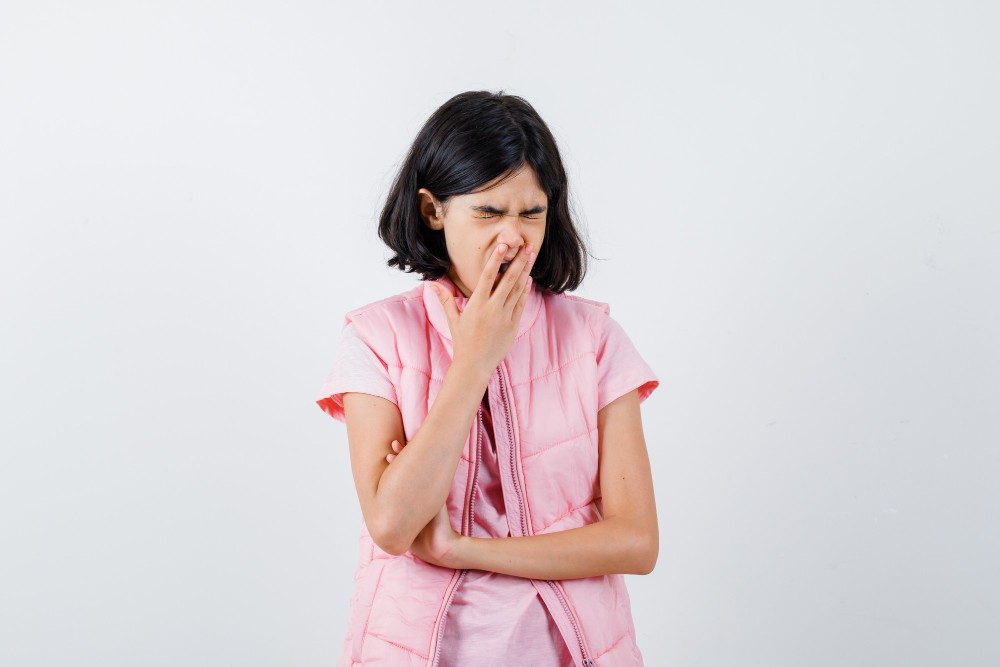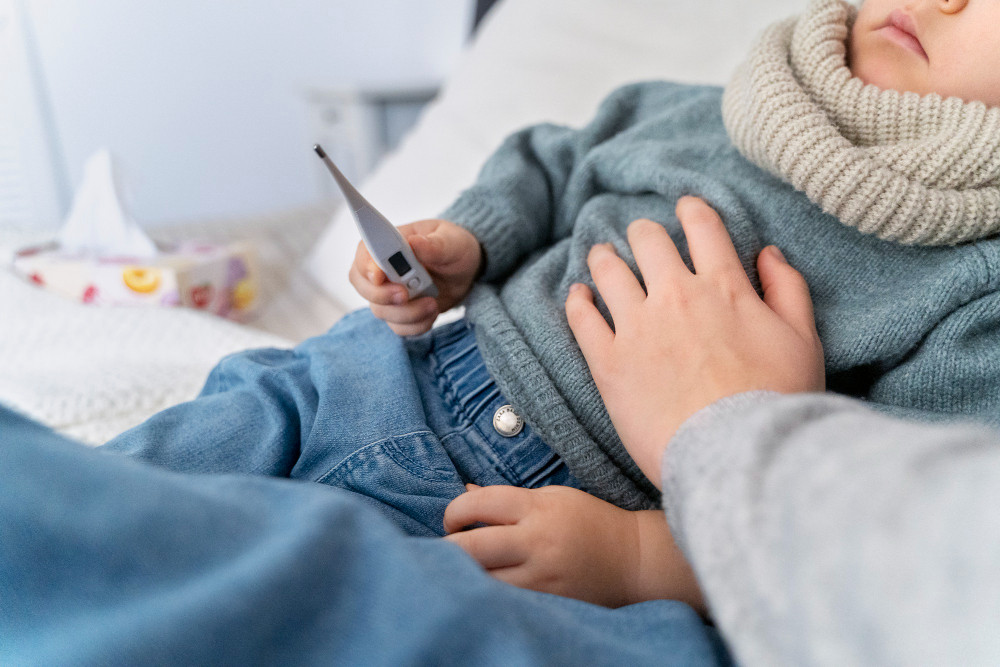During early childhood, bedwetting is commonly seen as a normal occurrence. Each child progresses uniquely, including in the development of bladder and bowel control. It's not uncommon for children under 7 years old to still struggle with recognizing when their bladder is full, leading to bedwetting. Additionally, toilet training typically occurs between ages 2 and 4, so occasional bedwetting in some children is not unusual.
Causes of bedwetting in children
If your child continues to experience bedwetting above the age of 7 or if bedwetting is accompanied by other issues, it's advisable to seek medical advice. There are various potential reasons for bedwetting in children, such as:
Time
As mentioned above, each child may take a different length of time to practice the ability to urinate. Therefore, they may not be able to wake themselves up to go to the bathroom when their bladder is full at night, resulting in bedwetting. It's important to note that some children may require more time than others to fully develop this skill.
Genetic factor
There appears to be a connection between family genetics and children's continued bedwetting into older ages. If there is a history of bedwetting among family members, particularly parents or siblings, during their older years, genetics might play a role, although further investigation is necessary to confirm this.
Interrupted sleep
Children may also experience bedwetting problems when they have medical sleep disorders, poor quality sleep or fall asleep very easily. They tend to wet the bed more easily compared to children with good sleep quality.
Experiencing stress
Stress and life changes can trigger bedwetting in children, such as moving house, having a new baby, problems at school or other events that cause emotional stress.
Stress can disrupt a child's sleep patterns, causing them to sleep poorly and become less responsive to bladder signals. Heightened anxiety can also affect a child's bladder and bowel system, making them more susceptible to nighttime wetting.
Medical condition
Medical conditions such as urinary tract infections, constipation, impaired bladder function, excessive urine production, type 1 diabetes and neurological disorders can affect bladder control and cause bedwetting problems in older children.
What should be done if a child aged over 7 years continues to experience bedwetting?
Most children become bathroom-trained and bedwetting-free by the age of 5 years. But sometimes, at the age of 5-7 years or older, there are a small number of children who still wet the bed. This can be due to a variety of reasons, such as a medical condition or stress due to problems in the family or school.
If you are concerned about this condition, you can consult a doctor to help find out the underlying cause. Bedwetting due to medical conditions is only approximately 1% of cases. However, your doctor can evaluate your child's bedwetting problem.
In addition, here are some things you can do for your child:
- Teaching your child to sleep regularly and avoiding caffeinated drinks or excessive drinking before bedtime
- Minimize stress and anxiety that can affect your child's sleep quality
- Helping your child to urinate regularly throughout the night, including before bedtime
- Help the child identify and address the cause of the bedwetting problem
- Provide emotional support and not punish them because bedwetting is not their fault
Do you have any more inquiries concerning your child's health symptoms or bedwetting at night? Please visit a doctor or make use of the consultation features that are available in the Ai Care application by downloading the Ai Care application from the App Store or Play Store.
Looking for more information about pregnancy, breastfeeding, and the health of women and children? Click here!
- Sean Edbert Lim, MBBS
Nationalwide Children's (2018). Bedwetting: 5 Common Reasons Why Children Wet the Bed. Available from: https://www.nationwidechildrens.org/family-resources-education/700childrens/2018/02/bedwetting-5-common-reasons-why-children-wet-the-bed
Mayo Clinic (2023). Bed-wetting. Available from: https://www.mayoclinic.org/diseases-conditions/bed-wetting/symptoms-causes/syc-20366685
WebMD (2023). Bedwetting in Children. Available from: https://www.webmd.com/children/bed-wetting-urinary-incontinence-children
American Urological Association (2022). What Is Nocturnal Enuresis (Bedwetting)?. Available from: https://www.urologyhealth.org/urologic-conditions/bed-wetting-(enuresis)











